Belogorsk fortress in the story "The Captain's Daughter": writing an essay
One of the works of the school curriculum, written by the Russian writer Alexander Sergeevich Pushkin, is The Captain's Daughter. In this article, we will analyze the meaning of the place in which the youth Petrusha spiritually grew up and turned into a man, Pyotr Grinev. This is the Belogorsk fortress. What role does it play in the overall idea of the work? Let's figure it out.
How was the work created?
Before moving on to the question of what plot and semantic functions the Belogorsk fortress and all the episodes that took place in it perform, it is necessary to turn directly to the history of the creation of the story. No analysis of a work of art can do without an analysis of the events that served as an impetus for the creation of a particular creation, without a search for real prototypes of heroes.
The origins of the novel go back to the middle of 1832, when Alexander Sergeevich first addresses the topic of the uprising of Yemelyan Pugachev in 1773-1775. First, the writer gets access to secret materials with the permission of the authorities, then, in 1833, he goes to Kazan, where he is looking for contemporaries of those events, who have already become old men. As a result, from the materials collected, the "History of the Pugach Rebellion" was formed, which was published in 1834, but did not satisfy Pushkin's artistic research.
The idea directly about a major work, with a renegade hero in the title role, who ended up in the Pugachev camp, has been matured by the author since 1832, while working on the no less famous novel Dubrovsky. At the same time, Alexander Sergeevich had to be extremely careful, because censorship, due to any trifle, could consider such a work “free-thinking”.
Prototypes of Grinev
The essential components of the story changed repeatedly: for some time, Alexander Sergeevich was looking for a suitable surname for the key character, until he eventually settled on Grinev. By the way, such a person was really listed in real documents. During the uprising, he was suspected of conspiring with "villains", but as a result, he was released from arrest due to lack of evidence of his guilt. However, another person acted as the prototype of the protagonist: initially it was supposed to take Lieutenant of the 2nd Grenadier Regiment Mikhail Shvanovich, but later Alexander Sergeevich chose another participant in the events described, Basharin, who was taken prisoner by the rebels, but fled, and eventually began to fight on side of the riot suppressors.
Instead of the planned one nobleman, two of them appeared on the pages of the book: the antagonist Shvabrin, the “vile villain”, was added to Grinev. This was done in order to circumvent censorship obstacles.
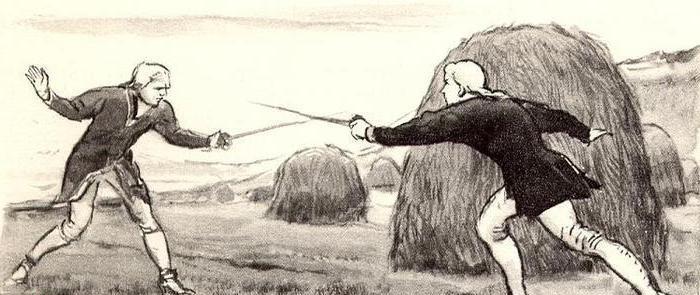
What is the genre?
The work, in which the Belogorsk fortress will play a significant role, was interpreted by the author himself as a historical novel. However, today, most researchers of literary criticism, due to the small volume of a literary work, attribute it to the genre of the story.
Belogorsk fortress: what did it look like?
The fortress appears in the story after the main character, Petrusha Grinev, reaches the age of 16. The father decides to send his son to serve in the army, which the young man thinks about with joy: he assumes that he will be sent to St. Petersburg, where he can continue to lead a wild, cheerful life. However, things turn out a little differently. Where does the young Grinev end up as a result? In the Belogorsk fortress, which, however, turned out to be even worse than her young man imagined.
Located in the Orenburg province, it was, in fact, a village surrounded by a wooden log palisade! Here Captain Mironov, the managing commandant, who, according to Petrusha, was supposed to be a firm, stern, strict old man, turned out to be affectionate and gentle, met the young man in a simple way, like a son, and conducted military exercises at all in a “cap and in Chinese bathrobe." The brave army consisted entirely of old invalids who could not remember where the right was and where the left was, and the only defensive weapon in the fortress was an old cast-iron cannon, from which it is not known when the last shot was fired.
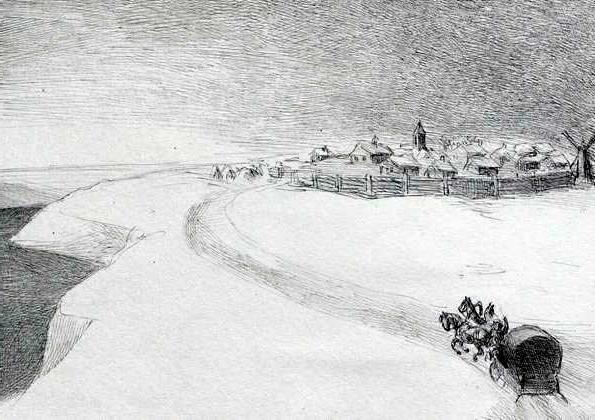
Life in the Belogorsk fortress: how Peter's attitude is changing
Over time, however, Grinev changed his mind about the Belogorsk fortress: here he was engaged in literature, he was surrounded by kind, bright and wise people with whom he liked to talk - this especially applied to the Mironov family, that is, to the commandant himself, his wife and daughter Masha. Peter's feelings flared up for the latter, because of which the young man stood up to defend the honor of the girl and his attitude towards her in front of the vile, envious, jealous Shvabrin.
A duel took place between the men, as a result of which Grinev was dishonestly wounded, but this only brought him even closer to Masha. Despite the lack of blessing from Father Peter, the lovers continued to be faithful to each other in words and deeds.
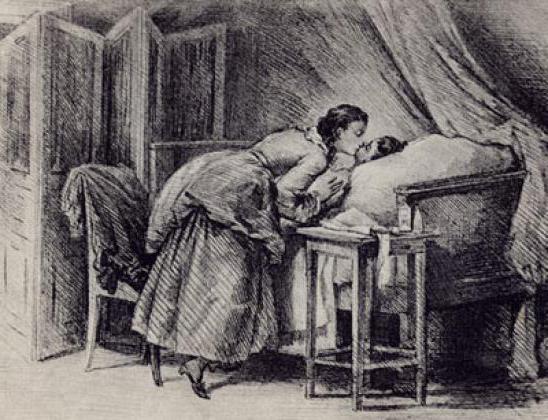
After the conquest of the fortress by Emelyan Pugachev and his bandit gang, the idyll collapses. At the same time, Peter continues to remember and honor the best moments of his life spent here and does not betray this place even after it is in the hands of the rebels. He flatly refuses to swear allegiance to Pugachev, and even the fear of death does not frighten him. The protagonist is ready to follow the commandant and other killed defenders of the fortress. However, the leader of the uprising agrees to spare Grinev for his integrity, honesty, loyalty to honor.
Grinev will find himself in the Belogorsk fortress, the essay about which is detailed in this article, and after the events described, because he will return here in order to save his beloved Masha, captured by the defector Shvabrin. As you can see, the fortress is one of the central places in the work. There are a large number of important, from the point of view of the plot and the development of the action, episodes.
Meaning
The composition "Belogorskaya Fortress" cannot end without a description of the meaning of this place in the semantic structure of the story. The fortress is one of the most important components of the formation of the hero's personality. It is here that Grinev meets with serious love, here he encounters the enemy. As a result, it is within the walls of the fortress that Peter turns from a boy into a mature person, a man capable of bearing responsibility for his actions.
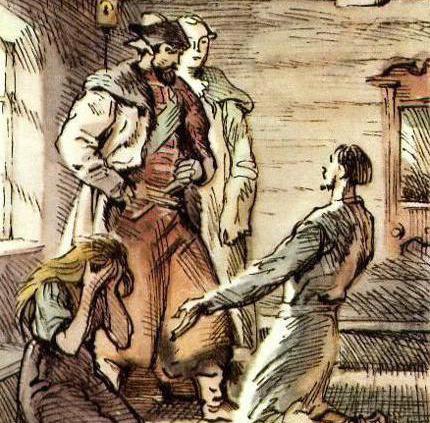
Here he thinks about many truly philosophical matters, for example, about the meaning of life, about honor, about the value of human life. Here his morality and purity finally crystallize.
Obviously, it was simply impossible to think of a better place - Pushkin's genius showed that appearance is not as important as life itself, life, traditions, culture of a certain place. Belogorsk fortress is an element that accumulates everything truly Russian, folk, national.
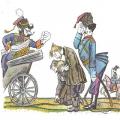 “Lefty” - a summary of the work N
“Lefty” - a summary of the work N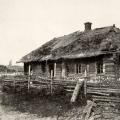 Turgenev, "Biryuk": a summary
Turgenev, "Biryuk": a summary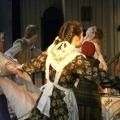 Comedy A.N. Ostrovsky "Poverty is not a vice": a summary of the work
Comedy A.N. Ostrovsky "Poverty is not a vice": a summary of the work